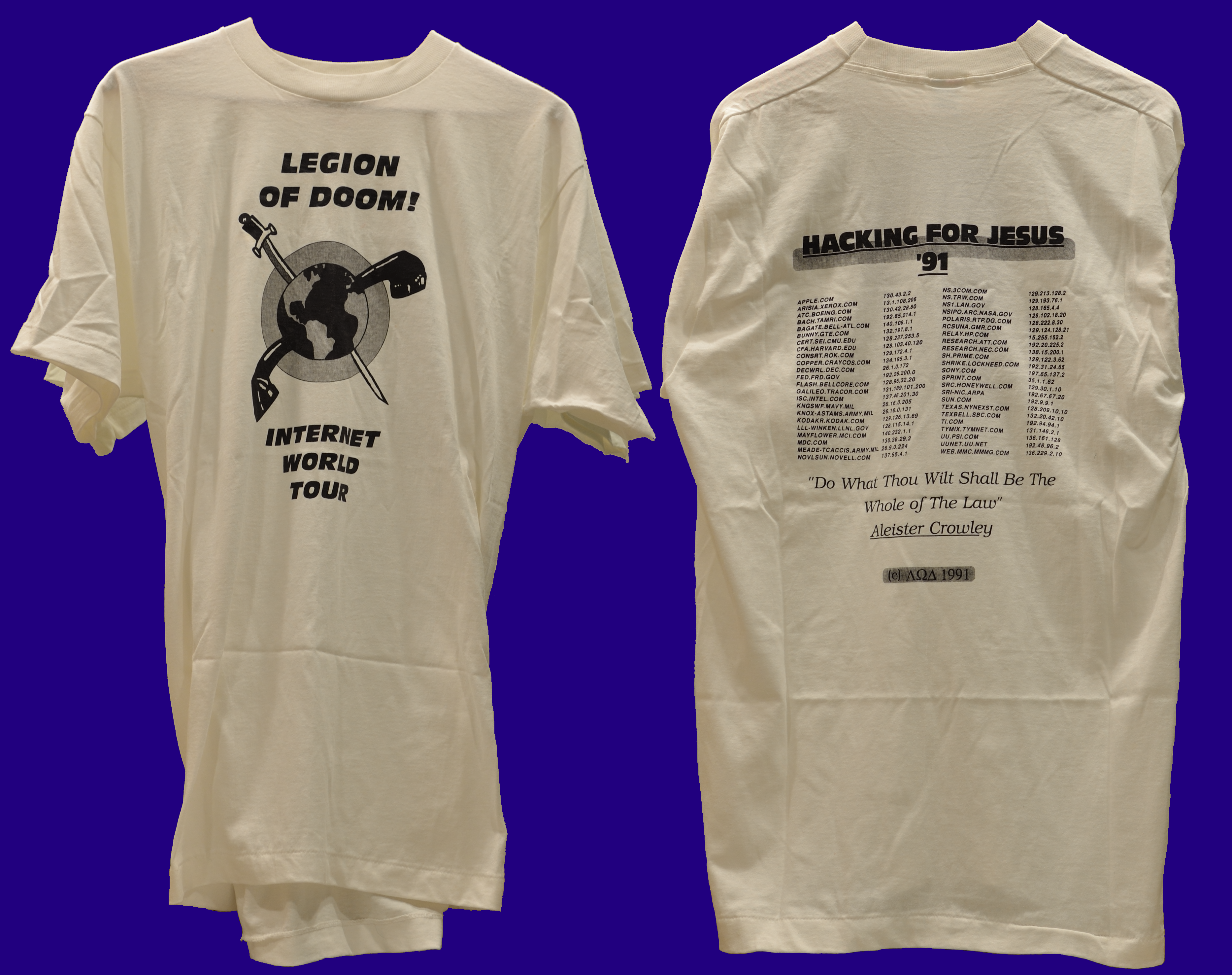Legion of Doom (hacking) on:
[Wikipedia]
[Google]
[Amazon]
The Legion of Doom (LOD) was an American hacker group founded by a hacker known as Lex Luthor after a rift with his previous group, the Knights of Shadow. LOD was active from the 1980s to the early 2000s, but was most active from 1984 to 1991. Today, Legion of Doom ranks as one of the more influential hacking groups in the history of technology. The name is apparently a reference to the antagonists of '' Challenge of the Superfriends''.
At different points in the group's history, LOD was split into LOD and LOD/LOH (Legion of Doom/Legion of Hackers) for the members that were more skilled at hacking than pure
 As of 2012, it is unknown what happened to individual members of the Legion of Doom. A small handful of the higher-profile LOD members who are accounted for includes: "Lex Luthor", " Erik Bloodaxe", "Mark Tabas", "Karl Marx", "Agrajag the Prolonged", "Automatic Jack", "
As of 2012, it is unknown what happened to individual members of the Legion of Doom. A small handful of the higher-profile LOD members who are accounted for includes: "Lex Luthor", " Erik Bloodaxe", "Mark Tabas", "Karl Marx", "Agrajag the Prolonged", "Automatic Jack", "
The Legion of Doom/Hackers Technical Journal
{{DEFAULTSORT:Legion of Doom (Hacking) Defunct computer magazines published in the United States Hacker magazines Hacker groups
phreaking
Phreaking is a slang term coined to describe the activity of a culture of people who study, experiment with, or explore telecommunication systems, such as equipment and systems connected to public telephone networks. The term ''phreak'' is a se ...
.
Another hacking group existed simultaneously, called MOD, short for the Masters of Deception. While the ideologies of LOD and MOD differed, there was a cross-over between the members of the groups, so the actions of the members can be difficult to attribute. Unlike the hacking group MOD, there are different opinions regarding what the Legion of Doom is. LOD published the ''Legion of Doom Technical Journals'' and contributed to the overall pool of hacking knowledge. They claimed that they did not cause direct harm to the phone systems and computer networks they accessed. Still, at the time, any tampering with the phone systems was considered damaging, and many LOD members were raided and prosecuted by law enforcement for causing alleged damage to systems (Grant, Darden and Riggs, etc.).
Members of LOD
 As of 2012, it is unknown what happened to individual members of the Legion of Doom. A small handful of the higher-profile LOD members who are accounted for includes: "Lex Luthor", " Erik Bloodaxe", "Mark Tabas", "Karl Marx", "Agrajag the Prolonged", "Automatic Jack", "
As of 2012, it is unknown what happened to individual members of the Legion of Doom. A small handful of the higher-profile LOD members who are accounted for includes: "Lex Luthor", " Erik Bloodaxe", "Mark Tabas", "Karl Marx", "Agrajag the Prolonged", "Automatic Jack", "Bill From RNOC
Bill(s) may refer to:
Common meanings
* Banknote, paper cash (especially in the United States)
* Bill (law), a proposed law put before a legislature
* Invoice, commercial document issued by a seller to a buyer
* Bill, a bird or animal's beak
Plac ...
", " Lord Digital", " The Mentor", "Doctor Who", " Dead Lord", " Phiber Optik", who was a member of both LOD and Masters of Deception (MOD), and " Terminus".
Internal and external battles of LOD
LOD was against wanton destruction of hacked computers. Gary Cohen "Terminal Man" was dismissed from the group for this reason. Other disagreements led to infighting between Erik Bloodaxe and Mark Tabas. A war with MOD was undertaken, and Erik Bloodaxe led as LOD's general. While Bloodaxe was active in this regard, other LOD members were less so.Projects of LOD
In 1992, several members of LOD came together and founded LODCOM, Inc., which collected old hacker bulletin board messages for an archive, which was to be sold. Most, if not all, of this material later ended up on textfiles.com. Marauder formed LOD.COM as a consulting company, and several ex-LOD members had accounts on the system. In the late 1990s, a root DNS server had an illicit newTLD
A top-level domain (TLD) is one of the domain name, domains at the highest level in the hierarchical Domain Name System of the Internet after the root domain. The top-level domain names are installed in the DNS root zone, root zone of the nam ...
of .LOD for over a year. The business name "LOD Communications" arose sometime in the late 80s when Frank Carson (aka Basketball Jones - one of the few "Unknown to the public" LOD Members) registered the name & applied for a CT Tax ID to enable Marauder to get on the Bellcore technical document mailing list.
See also
*Great Hacker War
The Great Hacker War was a purported conflict between the Masters of Deception (MOD), an unsanctioned splinter faction of the older hacker group Legion of Doom (LOD), and several smaller associated groups. Both primary groups involved made atte ...
*The Hacker Crackdown
''The Hacker Crackdown: Law and Disorder on the Electronic Frontier'' is a work of nonfiction by Bruce Sterling first published in 1992.
The book discusses watershed events in the hacker subculture in the early 1990s. The most notable topic cover ...
* Masters of Deception
References
Public access legal records and transcripts
*US Government's Sentencing Memorandum, US v. Grant, Darden and Riggs, Criminal Action Number 1:90-CR-31, December 1990. (US Government v. "Legion of Doom") *LOD Technical Manuals and sourceThe Legion of Doom/Hackers Technical Journal
{{DEFAULTSORT:Legion of Doom (Hacking) Defunct computer magazines published in the United States Hacker magazines Hacker groups